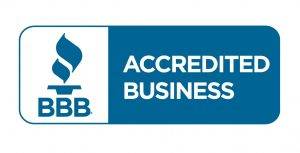Expectant parents can now confirm paternity before their child’s birth thanks to prenatal paternity testing, a revolutionary scientific development. The area of prenatal DNA has allowed obstetricians to play a substantial role in facilitating early genetic identification. Whereas conventional paternity tests are carried out after birth.
This article will examine the idea of prenatal paternity testing and how obstetricians might be involved, shedding light on the advantages. Factors to consider and potential options for pregnant parents seeking prenatal paternity confirmation.
What is Prenatal Paternity Testing?
Prenatal paternity testing is used to identify an unborn child’s biological father while the mother is pregnant. To add more, paternity can be determined using this testing approach before the baby is delivered. It entails examining the fetus’ DNA to match it with the DNA of the purported father and determine a genetic connection. Prenatal paternity testing can give expectant parents security and peace of mind by confirming the biological father of their child with clarity and certainty.
Understanding Prenatal Paternity Testing.
Prenatal paternity testing includes identifying the biological father of an unborn child by examining the fetus’ DNA while the mother is pregnant. Moreover, the paternal genetic material can be found in the baby’s genetic makeup using this testing approach. Prenatal paternity tests and noninvasive DNA tests while pregnant have historically used invasive procedures. Likewise, chorionic villus sampling (CVS) or amniocentesis was dangerous. The analysis of fetal DNA found in the mother’s circulation is what non-invasive prenatal paternity testing procedures rely on to determine the father.
Can Your Obgyn Do a DNA Test While Pregnant?
Prenatal paternity testing is used to identify an unborn child’s biological father while the mother is pregnant. However, before the baby is delivered, paternity can be determined using this testing approach. It entails examining the fetus’ DNA to match it with the DNA of the purported father and determine a genetic connection.
Prenatal paternity testing can give expectant parents security and peace of mind by confirming the biological father of their child with clarity and certainty. Moreover, prenatal paternity tests can be performed using a variety of techniques. Which may include invasive procedures like chorionic villus sampling (CVS) or amniocentesis and non-invasive techniques that examine fetal DNA in the mother’s bloodstream.
The Role of Obstetricians
While obstetricians primarily focus on monitoring the health and well-being of the mother and developing fetus during pregnancy. However, they can be essential in facilitating discussions about prenatal paternity testing. Obstetricians are knowledgeable about the various testing options available.
Moreover, they can provide guidance and recommendations based on the specific circumstances of each expectant parent. They can explain the benefits and limitations of prenatal paternity testing. Furthermore, discuss the potential risks associated with invasive procedures, and provide referrals to specialized laboratories or genetic counselors who can perform the tests.
Where Can I Get a Prenatal Paternity DNA Test Done?
Specialist labs or genetic testing facilities that provide such services can do prenatal paternity DNA testing. Selecting a recognized and accredited institution is critical to guarantee accurate and trustworthy findings. Moreover, these facilities have the know-how, the tools, and the qualified personnel to carry out prenatal paternity testing in a precise and secure manner. You can seek advice from your healthcare professional, such as your obstetrician or genetic counselor, who can make suggestions depending on your unique need, to locate an appropriate provider.
Additionally, you can find reliable labs or genetic testing facilities that provide prenatal paternity DNA testing services by conducting online research and reading reviews. When choosing one, consider a provider’s experience, accreditation, client testimonials, and testing procedures. Additionally, it is a good idea to speak with the selected service to learn about the testing procedure, related expenses, and any prerequisites.
How Soon Can You Get a DNA Test After the Baby is Born?
It is usually possible to perform DNA testing on newborns as soon as a few days after birth. Depending on the particular testing facility or laboratory, the precise timing could vary. A simple cheek swab is typically used to capture a DNA sample from the baby’s mouth. The laboratory will then analyze this sample.
However, it is crucial to understand that because DNA does not change over time, the accuracy of the test findings is unaffected by the passing of time since birth. To choose the best time to perform the DNA test after the baby is delivered, taking into account any unique circumstances or medical considerations, it is advised to speak with the healthcare practitioner or genetic counselor.
Don't Ruin Your Relationship By Misunderstanding.
Get Accurate Answers With Our Paternity Test!
- Accredited Lab
- Accurate & Quick Results
- Private and Secure
- Affordable

How Accurate is Prenatal Paternity DNA Testing?
Prenatal paternity DNA testing is typically accurate when carried out by recognized labs or genetic testing facilities utilizing legitimate and trustworthy techniques. The specific testing technique and the caliber of the collected genetic samples determine how accurate the test will be.
The accuracy of noninvasive DNA tests while pregnant, which examine fetal DNA in the mother’s bloodstream, usually is relatively high, frequently reaching 99%. Furthermore, it is crucial to remember that factors like the gestational age of the pregnancy and the caliber of the genetic samples collected can affect how accurate the results are.Selecting a renowned and accredited laboratory or testing institution is critical to guarantee accurate results. It can be helpful to seek the advice of medical experts or genetic counselors while looking for reliable suppliers.
To maximize the accuracy of the results. Moreover, it is also crucial to adhere to any specific instructions supplied by the testing facility regarding sample collection and submission. Remember that no test is 100% accurate and that all scientific testing procedures include a little margin for error. Non Invasive DNA tests while pregnant, however, can offer very reliable results with adequate methods and high-quality testing, giving expectant parents clarity and certainty.
How Much Does it Cost to Get a DNA Test while Pregnant?
The price of a noninvasive DNA test while pregnant might differ depending on several variables, such as the precise testing technique utilized. Moreover, the lab or facility conducting the test and any additional services or choices requested. Due to the intricacy and specialized nature of the methods required, prenatal DNA testing is typically more expensive than post-birth DNA testing.
The price may be in the hundreds to thousands of dollars range. Non-invasive techniques that analyze fetal DNA from the mother’s bloodstream are typically less expensive than invasive procedures like chorionic villus sampling (CVS) or amniocentesis.




















